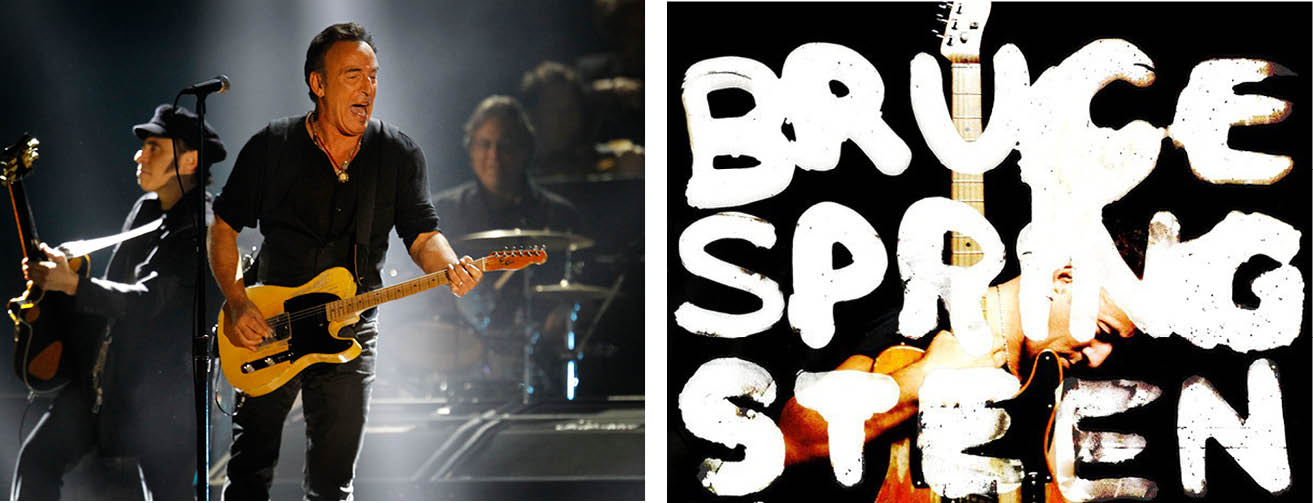Why My Kids Will Listen to the Boss and Like It
March 28, 2012

Bruce Springsteen, for me, is my gringot: a storyteller that took the ugliest parts of New Jersey, and made them beautiful in song; a historian of sorts whose commentary is solely painted with romance and escape for kids of the ’70s and ’80s who are now parents themselves; a patron saint that seemed to watch over me wherever I went as I experienced shitty summer jobs, high school hierarchies and Jersey shore romances that constituted of catching footballs and Frisbees in front of girls on the beach. With the debut of his 17th studio album “Wrecking Ball,” Bruce enforces the reason why so many still call him “The Boss.”
Through my parents’ will to expose Bruce’s music to my young and impressionable mind, I finally learned what it meant to have an identity. Before Bruce, my New Jersey consisted of drives on I-280 through the ruins of factories and power plants in Newark, a scene that elaborately illustrated New Jersey to outsiders as the “armpit of America.”
But because of Bruce, I learned to own that identity and give a big f*** you to anyone who tried to diminish that image. In many ways, Bruce was the cool uncle that visited every once in a blue moon, and during those visits, told you dirty jokes, taught you how to fistfight, snuck you beers at neighborhood barbeques and slipped you $20 here and there to go spend in the city.
But as the Boss provided my adolescence with a burgeoning Jersey-based identity that was OK to be proud of, he also taught lessons of class, race, religion and ethnicity through song and action that you couldn’t learn from any middle or high school.
I was taught what “blue collar” meant; I learned that many of Bruce’s early musical inspirations were black doo-wop and soul artists such as James Brown; I discovered that my hometown of West Orange, as well as other towns my family associates with like Jersey City, Newark and Lyndhurst are the quintessential towns in which Bruce sang about—communities that featured a melting pot of cultures that fed off of each other and painted each town in white, black, brown and yellow.
He reassured me that it wasn’t embarrassing to attend Sunday school at my local church because he went through it as well. I inherited all of this in my upbringing—enforced through the good graces of Jersey’s favorite son—a feat that has been well taken into account the importance and gravitas that a scrappy kid from Freehold was able to teach a pudgy and puzzled kid from West Orange 30 years apart.
My trips to the Jersey shore wouldn’t have been complete without the Boss by my side. Each CD case I opened with the lyrics inside the booklet gave guidelines as to how to spend the night with your summer crush you met on the beach.
But, some things were easier said than done. Yet, it was the thrill of knowing that Bruce was right alongside you, narrating your night as if it was written out on a pre-destined love note that said “check yes” if you wanted to put your big boy pants on or “check no” if you still wanted to remain a little kid with your hand down your pants. Bruce’s music enabled any teenage male with the swagger and attitude that he himself had when he strutted the boardwalk of Asbury Park during the summer months searching for a girl, with no help from Madame Marie of course.
When the time comes that I do have kids, they will listen to Bruce and like it. Packs of diapers will be stored next to copies of “Born to Run” while the summer heat will usher in “Hungry Heart” as I feed my son or daughter in a soaked button down fresh from work. Our vacations to the Jersey shore will be characterized by “The Wild, the Innocent and E Street Shuffle” as I play wiffle ball in the street with my kids in front of our beach house. When I take my kids to see the new New York City skyline and tell them of the two tall buildings that used to be there, I’ll tell them through “The Rising.”
Bruce is 62 years-old now; he may or may not be still alive once I have my first kid, whenever that is, but I know this: He/she/they will appreciate Bruce and what he did for me, my friends, my hometown, my home state and my childhood.











